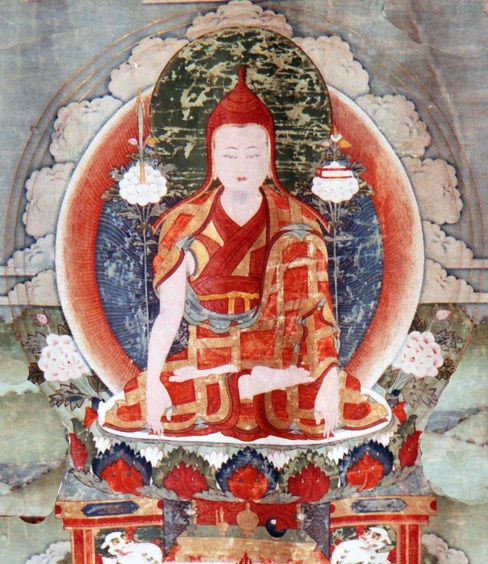MAGICAL SHOW is the poignant story of Kunga Wangchuk, a devoted Buddhist scholar,
who survived almost certain death and 21 years in Chinese concentration prisons,
to finally escape Tibet, walking alone across the Himalayas to India.
His undying dream was to join the new reincarnation of his deceased master, (Khyentse Norbu),
and re-establish the renowned legacy of Buddhist philosophical teachings he was a last living repository of.
Together they rebuild the monastic college in exile that also becomes home to the football loving lamas
who inspired ‘The Cup’
and re-establish the renowned legacy of Buddhist philosophical teachings he was a last living repository of.
Together they rebuild the monastic college in exile that also becomes home to the football loving lamas
who inspired ‘The Cup’
This moving story shows the strength and determined will of a truly remarkable man,
with a truly remarkable tale to tell.
with a truly remarkable tale to tell.
Charismatic Tibetan Buddhist reincarnate master and filmmaker Khyentse Norbu (The Cup, Travelers and Magicians) has an ultimate vision - to make a feature film about the life of the Buddha.
His idea is to parallel the story of Khenpo Kunga Wangchuk, a saintly Tibetan master,
who, after 21 years in Chinese concentration prisons, crossed the Himalayas,
alone, on foot, to meet the new reincarnation of his beloved guru, 20 year-old Norbu.
Together the young reincarnate and old master rebuild their famous Buddhist philosophical university Dzongsar Shedra, decimated during the Chinese Cultural Revolution.
who, after 21 years in Chinese concentration prisons, crossed the Himalayas,
alone, on foot, to meet the new reincarnation of his beloved guru, 20 year-old Norbu.
Together the young reincarnate and old master rebuild their famous Buddhist philosophical university Dzongsar Shedra, decimated during the Chinese Cultural Revolution.
As the life of the historical Buddha is contrasted through the innocently magical vision of a little girl,
Norbu begins filming the elderly Kunga Wangchuk who poignantly narrates the story of his ‘three lives’.
Norbu begins filming the elderly Kunga Wangchuk who poignantly narrates the story of his ‘three lives’.
Pre-revolution, in a lost dream of old Tibet he was a master teacher.
Then, surviving death and imprisoned for 21 years,
his intimate and understated recollections of physical and mental torment.
his intimate and understated recollections of physical and mental torment.
Finally released, he courageously escapes to India to rebuild the scholarly tradition
he was a last living knowledge-holder of.
He desires only to tirelessly teach the complete cycle of wisdom.
he was a last living knowledge-holder of.
He desires only to tirelessly teach the complete cycle of wisdom.
But most unique is his radiance.
He has no hatred.
He has no hatred.
A much-revered teacher to the Dalai Lama himself,
Khenpo Kunga Wangchuk epitomizes the Buddhist faith and what it really stands for.
Khenpo Kunga Wangchuk epitomizes the Buddhist faith and what it really stands for.
littlerani.blogspot.com/2006_09_01_archive.html
film festival:
movie.cca.gov.tw/tidf/exhibition_eng.asp
Image Lantern Pictures, Ltd
Director & Producer
Anika Tokarchuk
Pal digitalbetacam
54 min




